
Ngatpang: Palau's Hidden Gem
Ngatpang, located on the western side of Babeldaob Island in Palau, is a destination that seamlessly blends natural beauty with a rich cultural heritage. This tranquil village offers a unique respite from the bustling tourist hubs, making it an ideal spot for travelers looking to experience Palau’s authentic charm. Ngatpang is known for its lush landscapes and pristine rivers. The Ngatpang Waterfall is a must-see, offering a serene setting perfect for picnics and relaxation. For the adventurous, the surrounding forests provide excellent hiking opportunities, with trails that lead to breathtaking views and hidden streams. Cultural enthusiasts will appreciate the traditional Bai, or meeting houses, that showcase Palauan craftsmanship and storytelling. The village is also home to several ancient stone monoliths, adding a touch of historical intrigue to your visit. Don’t miss the opportunity to engage with the friendly locals, who are always eager to share their customs and stories. Ngatpang’s coastal areas are equally enchanting, with crystal-clear waters that are perfect for snorkeling and kayaking. The marine life here is vibrant, offering a glimpse into the rich biodiversity of Palau's underwater ecosystem. Whether you’re exploring the inland wonders or the coastal treasures, Ngatpang promises an enriching and unforgettable experience.
Local tips in Ngatpang
- Visit Ngatpang Waterfall early in the morning to avoid crowds and enjoy the peaceful ambiance.
- Bring comfortable hiking shoes for the forest trails; they can be slippery after rain.
- Engage with the local community to learn more about Palauan traditions and history.
- Don't forget your snorkeling gear for exploring the vibrant marine life along the coast.
- Carry mosquito repellent, especially if you plan to spend time near the rivers or in the forests.
Ngatpang: Palau's Hidden Gem
Ngatpang, located on the western side of Babeldaob Island in Palau, is a destination that seamlessly blends natural beauty with a rich cultural heritage. This tranquil village offers a unique respite from the bustling tourist hubs, making it an ideal spot for travelers looking to experience Palau’s authentic charm. Ngatpang is known for its lush landscapes and pristine rivers. The Ngatpang Waterfall is a must-see, offering a serene setting perfect for picnics and relaxation. For the adventurous, the surrounding forests provide excellent hiking opportunities, with trails that lead to breathtaking views and hidden streams. Cultural enthusiasts will appreciate the traditional Bai, or meeting houses, that showcase Palauan craftsmanship and storytelling. The village is also home to several ancient stone monoliths, adding a touch of historical intrigue to your visit. Don’t miss the opportunity to engage with the friendly locals, who are always eager to share their customs and stories. Ngatpang’s coastal areas are equally enchanting, with crystal-clear waters that are perfect for snorkeling and kayaking. The marine life here is vibrant, offering a glimpse into the rich biodiversity of Palau's underwater ecosystem. Whether you’re exploring the inland wonders or the coastal treasures, Ngatpang promises an enriching and unforgettable experience.
When is the best time to go to Ngatpang?
Iconic landmarks you can’t miss
Belau National Museum
Discover the vibrant history and culture of Palau at the Belau National Museum, a must-visit attraction for every traveler.
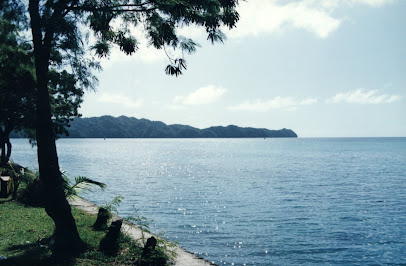
Ngardmau Waterfalls
Experience the breathtaking beauty of Ngardmau Waterfalls in Palau, where nature's splendor meets adventure and tranquility.
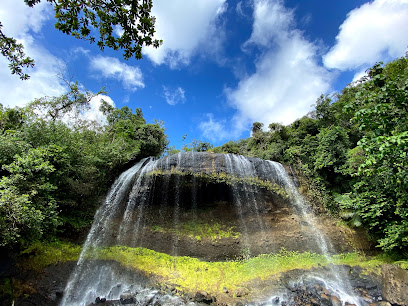
Japan-Palau Friendship Bridge
Explore the breathtaking Japan-Palau Friendship Bridge, a stunning architectural marvel and a symbol of enduring friendship between nations.
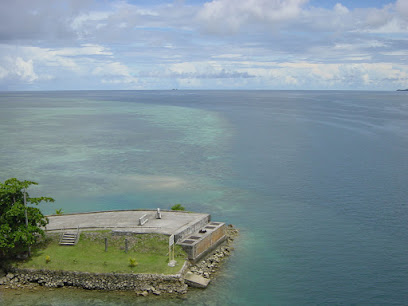
Palau Aquarium
Discover the vibrant marine life and conservation efforts at Palau Aquarium, an engaging tourist attraction in the heart of Koror, Palau.
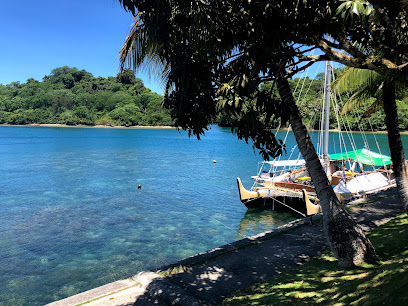
Badrulchau Stone Monoliths
Explore the majestic Badrulchau Stone Monoliths in Ngarchelong, Palau, and delve into the mysteries of ancient civilization amidst stunning natural beauty.
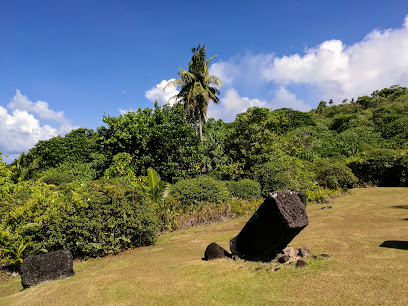
Palau National Capital
Explore the National Capital of Palau, a blend of culture, governance, and stunning tropical scenery in the heart of the Pacific.
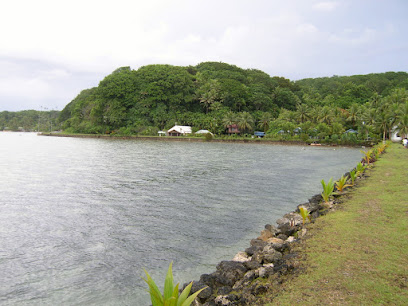
World War II Japanese Communications Center
Explore the World War II Japanese Communications Center in Airai, Palau, a historical landmark that unveils the stories of wartime strategy and significance.
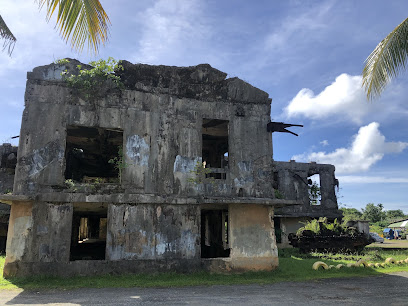
Airai Bai
Explore the natural beauty and rich cultural heritage of Airai Bai, a breathtaking tourist attraction in Palau that promises tranquility and unforgettable experiences.
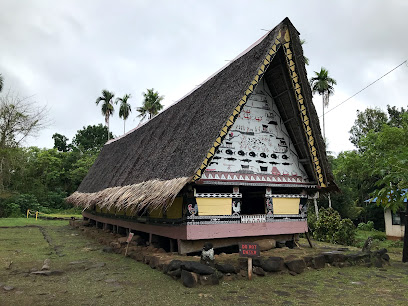
Ngatpang Tabecheding Waterfall
Experience the breathtaking beauty of Ngatpang Tabecheding Waterfall, a serene oasis in Palau's lush wilderness, perfect for relaxation and adventure.
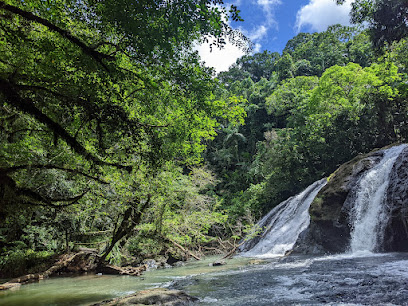
Kokusai Local Market
Explore the vibrant Kokusai Local Market in Ngatpang, Palau, and immerse yourself in the island's fresh produce and local culture.

Ngatpang State Protected Areas Network Office
Explore the Ngatpang State Protected Areas Network Office, a hub of conservation and eco-tourism in the heart of Palau's natural paradise.

Ngatpang State Government
Explore Ngatpang State in Babeldaob, where Palau's rich culture meets local governance in a tropical paradise.

Aimeliik Terrace (Oublallang er a Ngebedech)
Explore the rich cultural heritage and stunning views at Aimeliik Terrace, a historical landmark in the beautiful region of Aimeliik, Palau.
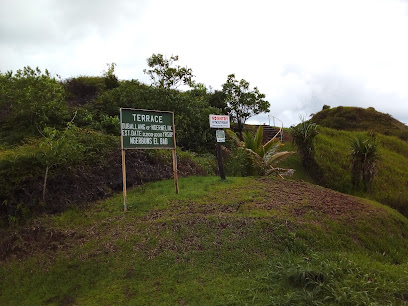
Ngatpang Quarry
Explore the historical significance and stunning views of Ngatpang Quarry, a must-visit landmark in Palau that reflects the island's rich mining heritage.

Odalmelech Historic Site
Explore the Odalmelech Historic Site in Melekeok, Palau – a cultural landmark showcasing the island's rich history and stunning natural beauty.

Unmissable attractions to see
Milky Way
Experience the breathtaking beauty of the Milky Way in Koror, Palau, where crystal-clear waters and vibrant marine life await your exploration.
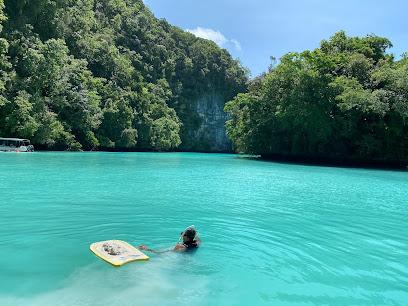
Belau National Museum
Explore the Belau National Museum in Koror, a cultural gem showcasing Palau's rich history and natural beauty.
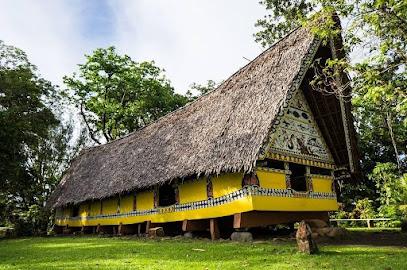
Jellyfish Lake
Explore Jellyfish Lake in Koror, Palau – a mesmerizing natural wonder where you can swim with harmless jellyfish in a stunning tropical paradise.
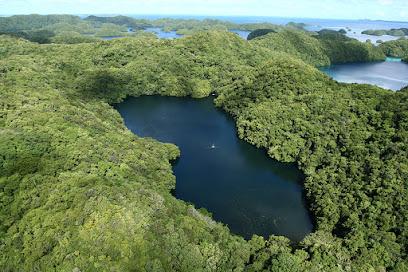
Island Paradise Resort Club
Immerse yourself in the serene beauty of Palau at Island Paradise Resort Club, where relaxation meets adventure in an idyllic setting.
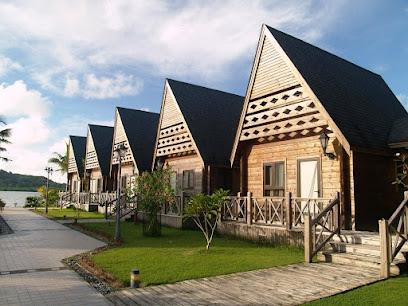
German Channel
Explore the mesmerizing German Channel in Palau, where crystal-clear waters and vibrant marine life create an unforgettable underwater adventure.
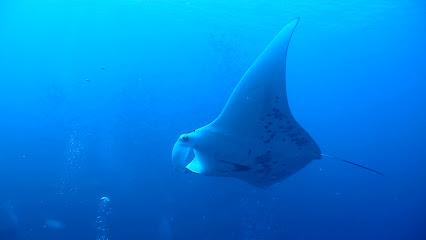
Etpison Museum
Explore Palau's vibrant culture and history at the Etpison Museum in Koror, where engaging exhibits and artifacts await.
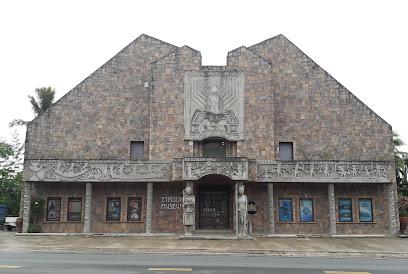
Ngermeaus Island Park
Explore the breathtaking landscapes and vibrant marine life at Ngermeaus Island Park, a serene escape in the heart of Palau.
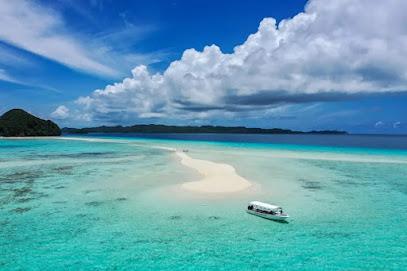
Neco Marine Palau
Experience the enchanting underwater world of Palau with Neco Marine, offering diverse diving, boating, and fishing adventures.
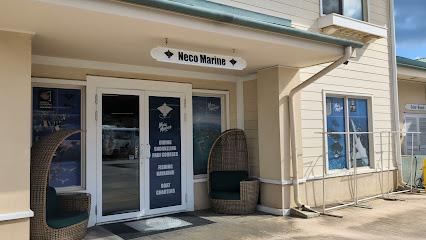
The Rock Islands
Explore the breathtaking beauty of the Rock Islands in Palau, a UNESCO World Heritage Site featuring stunning limestone formations and vibrant marine life.
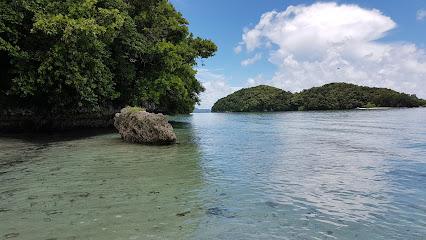
Nice view
Discover the stunning vistas of Elab in Ngaraard, Palau, a serene tourist attraction perfect for photography and nature lovers.
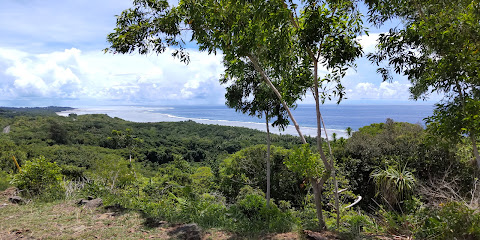
Ernguul Children's Park
Explore the lush landscapes and vibrant playgrounds of Ernguul Children's Park, a family-friendly destination in Koror, Palau, perfect for a day of fun and relaxation.
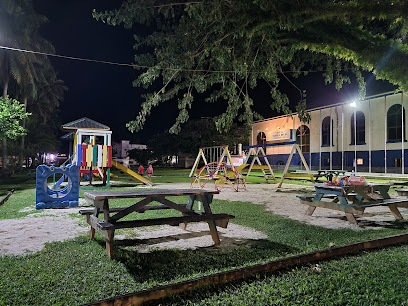
Ngelukes Conservation Area
Discover the serene beauty of Ngelukes Conservation Area, a nature preserve in Palau that invites exploration and appreciation of its rich biodiversity.

Ongellungel Ngermalk Trail
Explore Ongellungel Ngermalk Trail, a serene escape in Koror, Palau, where nature's beauty meets adventure and tranquility.
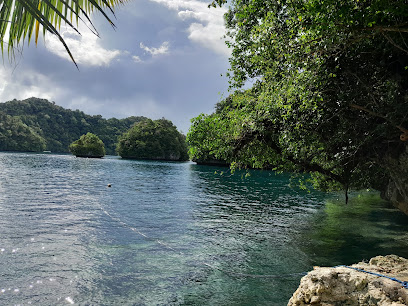
Ulong Beach
Explore Ulong Beach in Koror, Palau - a serene getaway known for its stunning beaches, vibrant marine life, and perfect for relaxation and adventure.
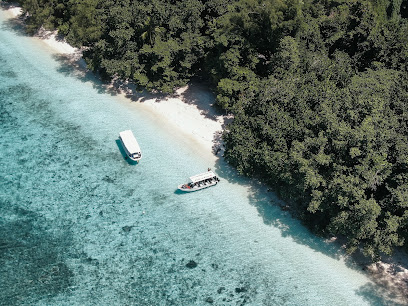
Essential places to dine
The Taj
Savor authentic Indian dishes at The Taj in Koror—where spices meet tradition for an unforgettable dining experience.
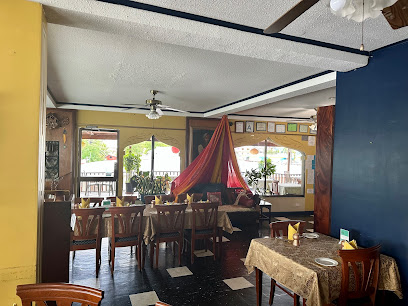
Elilai Seaside Dining
Experience gourmet cuisine with breathtaking ocean views at Elilai Seaside Dining in Koror, Palau - a fine dining paradise.
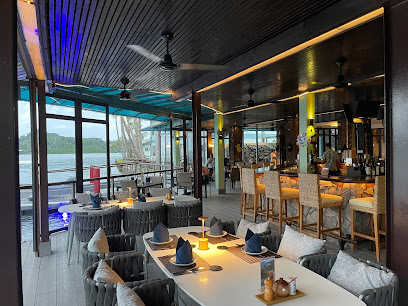
Tori Tori
Experience authentic Japanese cuisine at Tori Tori in Koror, Palau—where every dish tells a story.
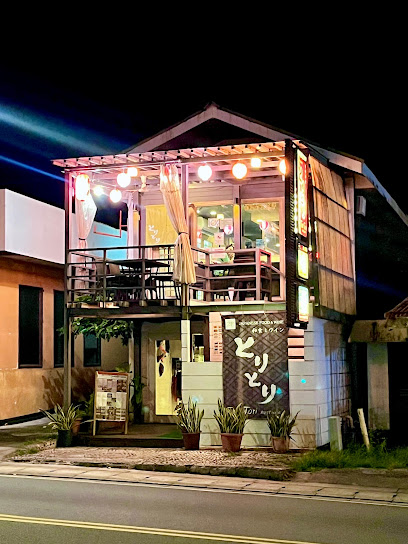
The Canoe House
Discover vibrant dining at The Canoe House in Koror, Palau – where fresh flavors meet lively entertainment!
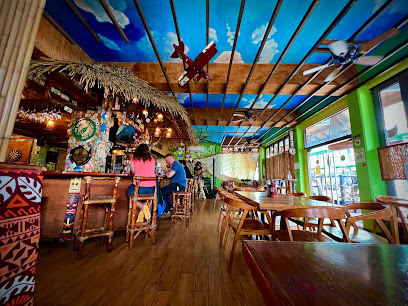
Rock Island Cafe
Experience authentic flavors at Rock Island Cafe in Koror - where local cuisine meets warm hospitality amidst stunning views.
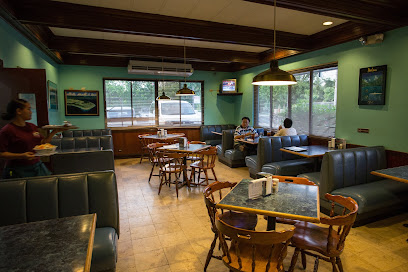
Coffee Berry
Discover the flavors of Palau at Coffee Berry - where local culture meets delightful dining experiences.
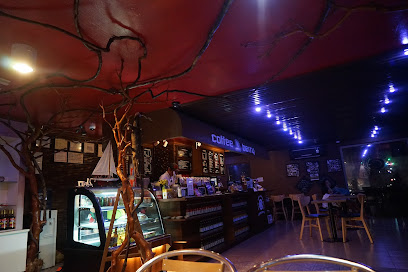
Palm Bay Bistro
Experience exquisite Pan Asian cuisine at Palm Bay Bistro in Malakal, Koror - where flavors from across Asia come together in a stunning setting.
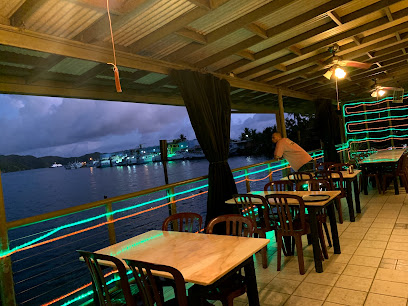
Suriyothai
Experience authentic Thai cuisine at Suriyothai in Koror, Palau – a culinary journey that delights every palate.
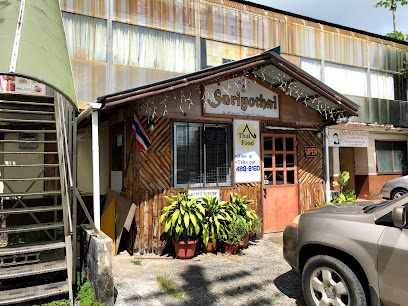
Carp Restaurant
Experience authentic Palauan cuisine at Carp Restaurant in Koror, where fresh ingredients meet vibrant flavors in a welcoming atmosphere.
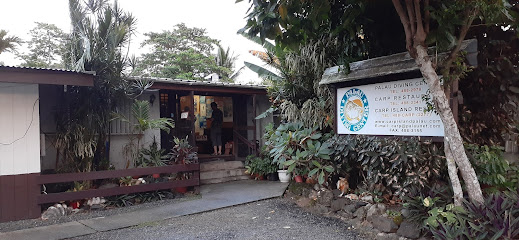
7 Eat Restaurant
Experience the best of local and international cuisine at 7 Eat Restaurant in Koror, Palau – a culinary gem waiting for you.
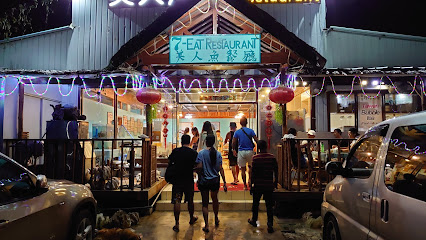
Palau Umi Korean and Japanese Cuisine
Experience the best fusion of Korean and Japanese cuisine at Palau Umi in Koror – where every dish tells a story.
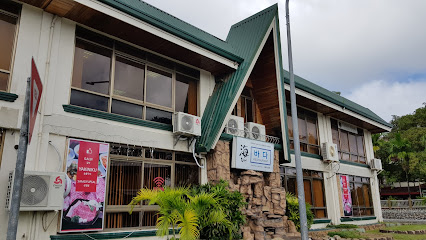
Okemii Deli & Internet Cafe
Experience authentic local flavors at Okemii Deli & Internet Cafe in Koror, Palau – where comfort meets culinary delight.
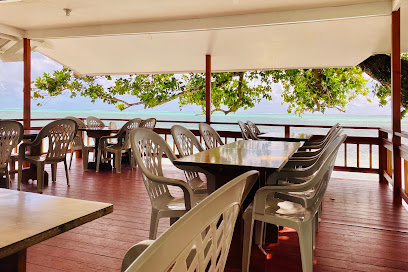
Red Rooster Cafe
Experience the vibrant flavors of Palau at Red Rooster Cafe in Koror - where local meets global cuisine in a warm and inviting atmosphere.
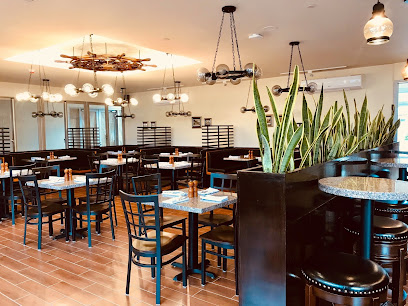
King Palace
Experience the exquisite flavors of Palau at King Palace Restaurant - where tradition meets culinary excellence.
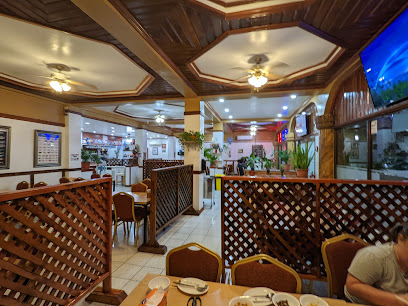
MJ Restaurant
Experience authentic Palauan flavors at MJ Restaurant in Koror - your gateway to delicious local cuisine amidst stunning island scenery.
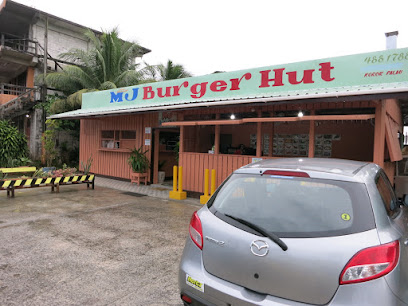
Markets, malls and hidden boutiques
Surangel and Sons Co. - Koror
Discover local crafts, unique souvenirs, and travel essentials at Surangel and Sons Co. - your ultimate shopping destination in Koror, Palau.
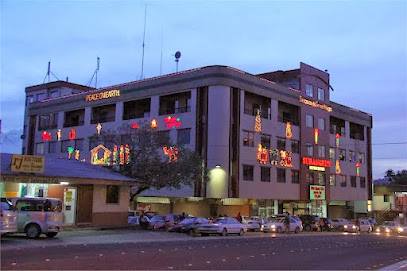
Rur Gift Shop & Cafe
Explore Rur Gift Shop & Cafe for authentic Palauan souvenirs and delightful refreshments in the heart of Koror.
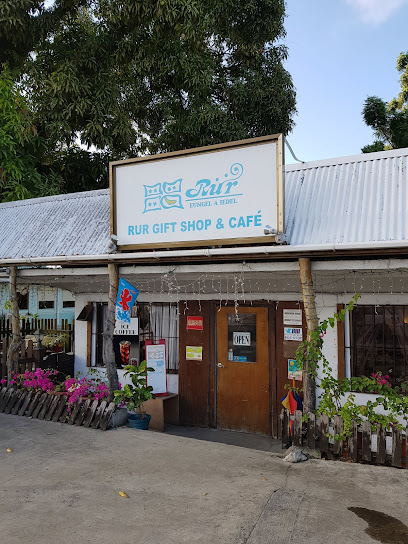
Ben Franklin Department Store
Explore the diverse offerings of Ben Franklin Department Store in Koror, where local culture meets modern convenience for an unforgettable shopping experience.
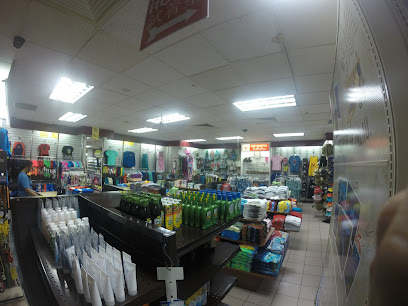
EXILE
EXILE offers a unique shopping experience in Koror, Palau, with a diverse selection of fashion that blends local charm and international trends.
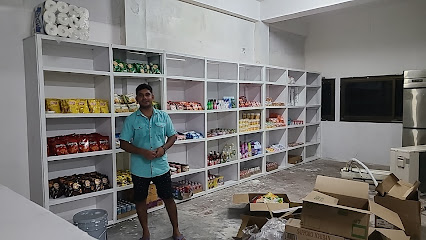
Amel Store
Explore the flavors of Palau at Amel Store, your local grocery destination for fresh produce and unique snacks.
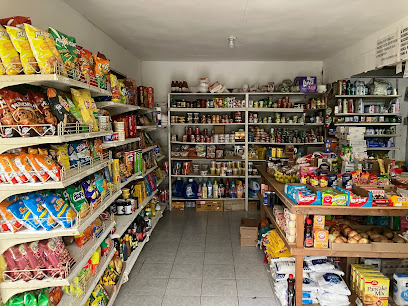
Wilson's Store
Explore the vibrant flavors of Palau at Wilson's Store, your local grocery destination for fresh produce and unique island treats.
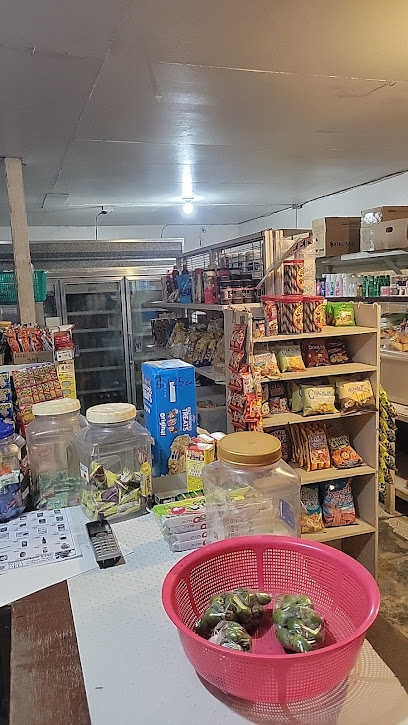
Lius Gift Shop
Explore Lius Gift Shop in Koror for a unique mix of souvenirs, fashion, and delicious treats that capture the spirit of Palau.
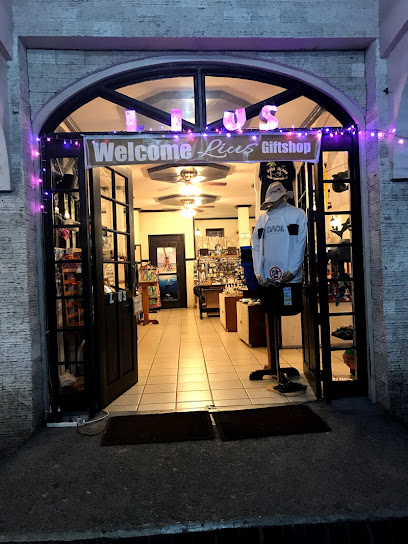
E&A Store
Explore E&A Store in Melekeok for unique local products and a taste of Palauan culture amidst a warm and inviting shopping atmosphere.
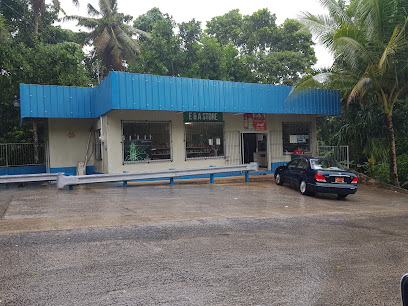
Palau Central Trading Co.
Explore the vibrant art and gourmet offerings at Palau Central Trading Co., a must-visit gift shop for every traveler in Koror.
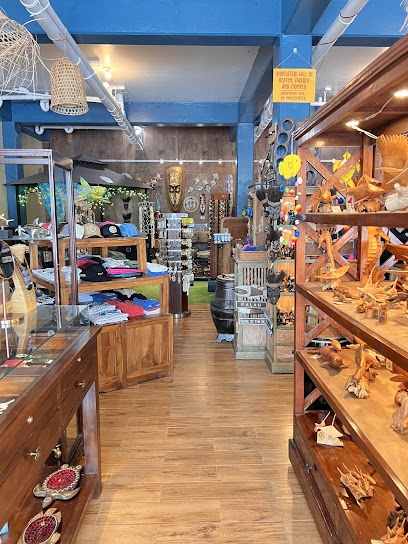
Elilai Budget Mart
Discover local flavors and budget-friendly groceries at Elilai Budget Mart, your go-to store in Koror, Palau for all your shopping needs.
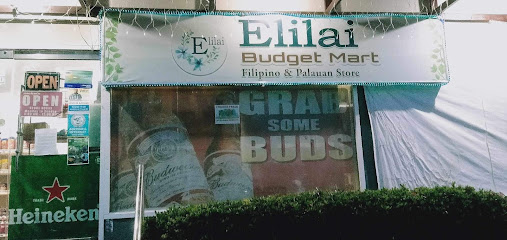
Community Store-2(CS-2)
Experience local life in Airai at Community Store-2, your go-to grocery for fresh produce, snacks, and local delicacies in Palau.

Capital Seaside Store
Discover unique local products and stunning seaside views at the Capital Seaside Store in Melekeok.
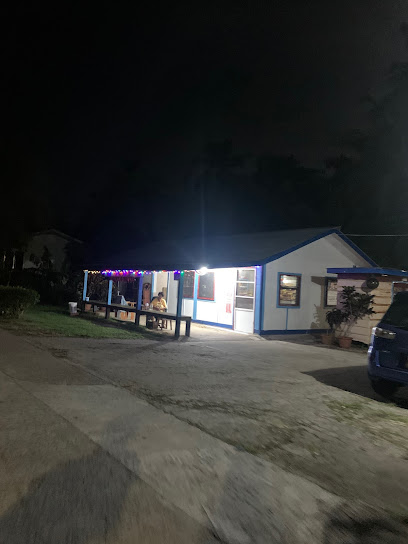
Jello's Fashion II
Explore Jello's Fashion II in Koror, Palau, for a unique shopping experience offering drinks, snacks, and trendy clothing at great prices.

TSA Paradise Store
Discover local convenience and charm at TSA Paradise Store in Ngarchelong, Palau, your go-to spot for travel essentials and local treats.

Hanpa Mart
Experience the essence of Korean cuisine at Hanpa Mart, your premier Korean grocery store in Koror, Palau, showcasing fresh ingredients and authentic flavors.
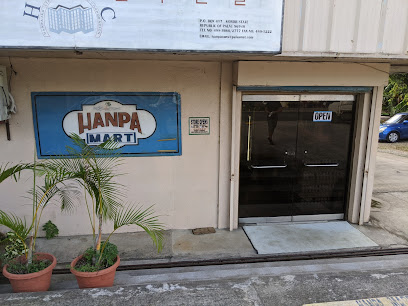
Essential bars & hidden hideouts
Drop Off Bar and Grill
Experience the best of Palauan cuisine at Drop Off Bar and Grill, where stunning ocean views meet delicious culinary offerings.
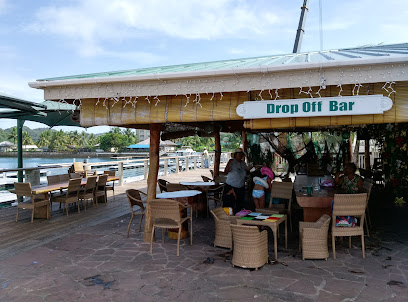
The Canoe House
Discover the lively ambiance and diverse menu at The Canoe House, a cornerstone of Koror's dining and nightlife scene in Palau.
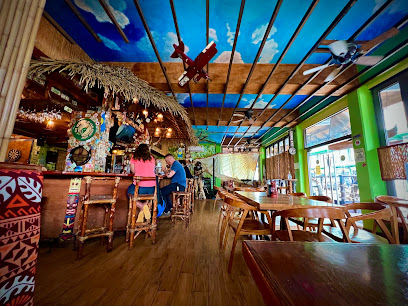
Red Rooster Cafe
Experience the vibrant tastes of Palau at Red Rooster Cafe, where local flavors and friendly service create unforgettable dining moments.
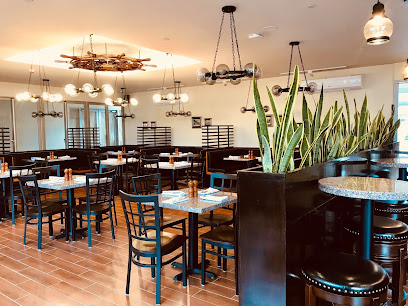
Krämer’s Bar and Restaurant
Discover the exquisite flavors of Palau at Krämer’s Bar and Restaurant in Koror, where local ingredients meet international cuisine.
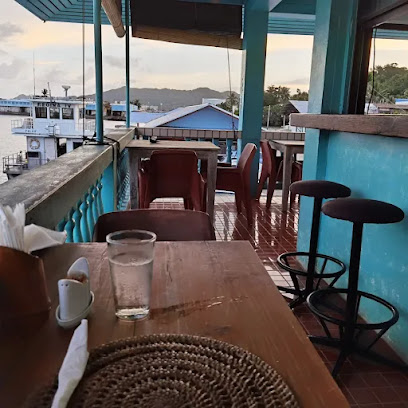
Riptide Beach Bar & Grill
Experience the flavors of Palau at Riptide Beach Bar & Grill, where ocean views meet delicious local cuisine in a vibrant atmosphere.
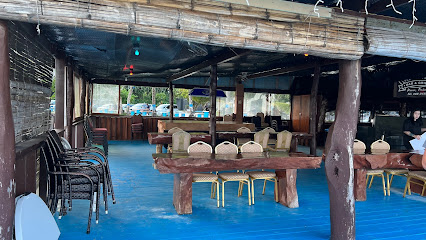
Barracuda Restaurant
Discover a culinary haven at Barracuda Restaurant, where local flavors and vibrant atmosphere meet in the heart of Koror, Palau.
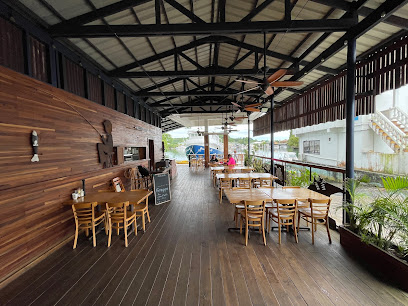
Hungry Marlin Restaurant & Bar at COVE Resort Palau
Experience the best of Palauan cuisine with stunning ocean views at Hungry Marlin Restaurant & Bar in COVE Resort.
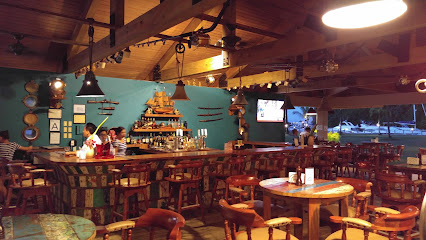
The Salad Bar
Experience the best of health food at The Salad Bar in Koror, where fresh ingredients and vibrant flavors come together.
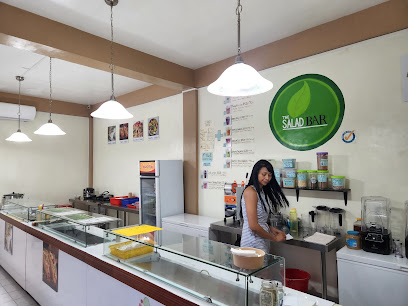
Executive Lounge
Experience the finest dining in Koror at the Executive Lounge, where elegance meets culinary excellence in a stunning setting.
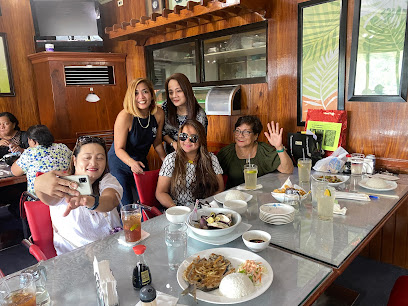
MisoHungry - PW
Discover the best sushi in Malakal, Koror at MisoHungry - a perfect blend of freshness, flavor, and a cozy ambiance.
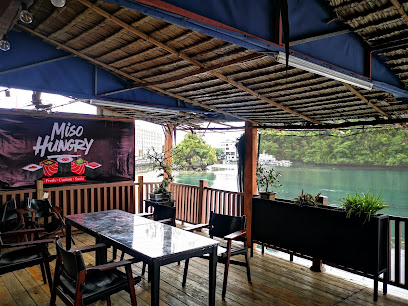
Bottom Time Bar and Grill
Discover the flavors of Palau at Bottom Time Bar and Grill in Koror, where local cuisine meets a relaxing tropical ambiance.
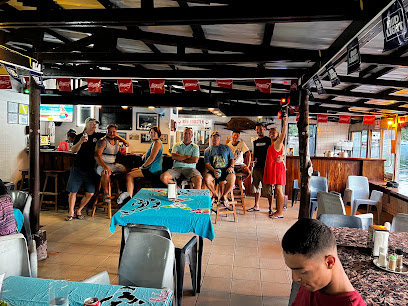
Jungle Bar
Experience the essence of Palau with delectable cuisine and a serene ambiance at Jungle Bar, your ultimate dining destination in Koror.
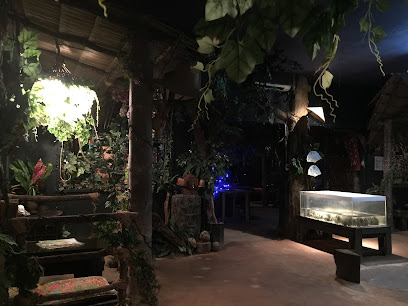
Weltz Bar at the Palasia Hotel
Experience the vibrant nightlife of Koror at Weltz Bar, where exquisite cocktails meet stunning views, all in the heart of Palasia Hotel.
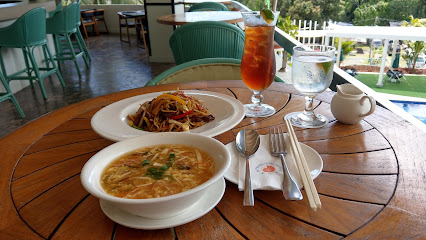
Beach Barbeque @ Palau Pacific Resort
Experience the serene beauty of Palau while indulging in delicious grilled delicacies at Beach Barbeque @ Palau Pacific Resort.
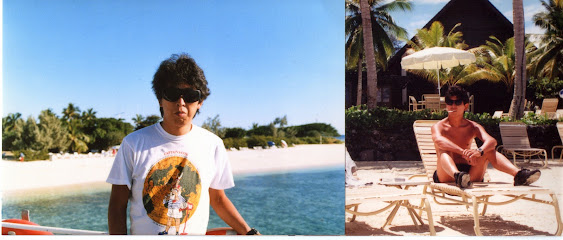
Local Phrases
-
- HelloAlii
[ah-lee] - GoodbyeKmal mesaul
[k-mal me-sow] - YesOu
[oh] - NoDiak
[dee-ahk] - Please/You're welcomeKemiu
[ke-mee-oo] - Thank youSulang
[soo-lang] - Excuse me/SorryKemiu
[ke-mee-oo] - How are you?Kemiu a ulterek?
[ke-mee-oo ah ool-teh-rek] - Fine. And you?Ungil. A ulterek?
[oong-geel ah ool-teh-rek] - Do you speak English?Ua rengalek a ngelabesul a beluu?
[oo-ah reng-ah-lek ah ngel-ah-beh-sool ah beh-loo] - I don't understandA diak el telemall
[ah dee-ahk el teh-leh-mal]
- HelloAlii
-
- I'd like to see the menu, pleaseAk mo meringel el menu a klalo
[ahk moh mer-in-gel el men-oo ah klah-loh] - I don't eat meatA diak el mo ungil
[ah dee-ahk el moh oong-geel] - Cheers!Omedelbekl
[oh-meh-del-beh-kl] - I would like to pay, pleaseAk mo meruul a bokel, klalo
[ahk moh meh-rool ah boh-kel, klah-loh]
- I'd like to see the menu, pleaseAk mo meringel el menu a klalo
-
- Help!Kau
[kow] - Go away!Kau mekerang
[kow meh-keh-rang] - Call the Police!Ua kau a tekingel
[oo-ah kow ah teh-king-el] - Call a doctor!Ua kau a medengel
[oo-ah kow ah meh-deng-el] - I'm lostA di meral diak
[ah dee meh-ral dee-ahk] - I'm illA di meral ilsek
[ah dee meh-ral eel-sek]
- Help!Kau
-
- I'd like to buy...Ak mo omes a...
[ahk moh oh-mes ah] - I'm just lookingA diak el mo uldoud
[ah dee-ahk el moh ool-dowd] - How much is it?Ke di mochu?
[keh dee moh-chu] - That's too expensiveA di meral melekoi
[ah dee meh-ral mel-eh-koy] - Can you lower the price?Ua kmeed a mochu?
[oo-ah k-meed ah moh-chu]
- I'd like to buy...Ak mo omes a...
-
- What time is it?Ke di mo meruul?
[keh dee moh meh-rool] - It's one o'clockA bilek a mengaol
[ah bee-lek ah men-gow-ol] - Half past (10)Ngalek a ngalekak
[ngah-lek ah ngah-leh-kak] - MorningBedeu
[beh-dew] - AfternoonRengalek
[reng-ah-lek] - EveningAolek
[ah-oh-lek] - YesterdayNgalek a nngelekel
[ngah-lek ah ngel-eh-kel] - TodayNgalek a mocha
[ngah-lek ah moh-chah] - TomorrowNgalek a molekoi
[ngah-lek ah mol-eh-koy] - 1A buil
[ah bool] - 2A ngalekak
[ah ngah-leh-kak] - 3A telkool
[ah tel-kool] - 4A ngerang
[ah ngeh-rang] - 5A kmal
[ah k-mal] - 6A kmo ngalekak
[ah k-moh ngah-leh-kak] - 7A kmo telkool
[ah k-moh tel-kool] - 8A kmo ngerang
[ah k-moh ngeh-rang] - 9A kmo kmal
[ah k-moh k-mal] - 10A kmo ngalek
[ah k-moh ngah-lek]
- What time is it?Ke di mo meruul?
-
- Where's a/the...?Ke diak el kmo...
[keh dee-ahk el k-moh] - What's the address?Ke diak el chad er a tekoi?
[keh dee-ahk el chad er ah teh-koy] - Can you show me (on the map)?Ua kmeed a meral ngii?
[oo-ah k-meed ah meh-ral ng-ee] - When's the next (bus)?Ke di milil ngalek?
[keh dee mee-leel ngah-lek] - A ticket (to ....)Ngalek a bilek el mocha...
[ngah-lek ah bee-lek el moh-chah]
- Where's a/the...?Ke diak el kmo...
History of Ngatpang
-
Ngatpang, one of the sixteen states of Palau, has a rich history that dates back to ancient times. It was originally settled by the early Austronesian people over 3,000 years ago. These settlers established complex societies with sophisticated agricultural practices, including taro cultivation in the fertile valleys of Ngatpang.
-
Ngatpang, like other regions in Palau, has a traditional clan system that has played an essential role in its social and political organization. The clans are matrilineal, meaning lineage is traced through the mother's line. This system has influenced land ownership, inheritance, and leadership roles within the community.
-
In the 16th century, Palau, including Ngatpang, came under the influence of the Spanish Empire. The Spanish explorers and missionaries introduced Christianity and new agricultural products. Although Spanish presence was limited, their influence marked the beginning of significant cultural and economic changes in the region.
-
Ngatpang came under German control in 1899 after Spain sold Palau to Germany following the Spanish-American War. The Germans focused on developing infrastructure and introduced modern education systems. They also encouraged the production of cash crops such as copra, which became an essential part of Ngatpang's economy.
-
During World War I, Palau was seized by Japan, and Ngatpang was no exception. The Japanese occupation brought about significant changes as they developed the island's infrastructure further and expanded agricultural production. They also established military installations in Ngatpang, which played a role during World War II.
-
Ngatpang, along with the rest of Palau, saw considerable military activity during World War II. The area was strategically important, and remnants of this period, including bunkers and military artifacts, can still be found today. The war left a lasting impact on the local population and landscape.
-
After World War II, Palau became a United Nations Trust Territory under American administration. This period saw further development in health, education, and infrastructure. Ngatpang benefited from these advancements, which helped modernize the state and improve the quality of life for its residents.
-
Ngatpang became part of the independent Republic of Palau in 1994. Since independence, the state has focused on preserving its cultural heritage while embracing modernity. Efforts have been made to promote sustainable tourism, protect natural resources, and maintain traditional practices, making Ngatpang a unique blend of past and present.
Ngatpang Essentials
-
Ngatpang is located on the western side of Babeldaob, the largest island in Palau. The nearest international gateway is Roman Tmetuchl International Airport in Airai, approximately 30 kilometers from Ngatpang. From the airport, you can rent a car, hire a taxi, or use a pre-arranged shuttle service to get to Ngatpang. The drive typically takes around 45 minutes, offering scenic views of the island.
-
Ngatpang is relatively rural, so renting a car is the most convenient way to explore the area. Taxis are available but can be expensive for long distances. Public transportation is limited, with infrequent bus services connecting Ngatpang to other parts of Babeldaob and Koror. For a more immersive experience, consider renting a bicycle or scooter to navigate the local roads and trails.
-
The official currency in Palau is the United States Dollar (USD). Credit cards are accepted in some hotels, restaurants, and shops, but it is advisable to carry cash, especially in smaller establishments and rural areas like Ngatpang. ATMs are available in Koror, and it's wise to withdraw sufficient cash before heading to Ngatpang. Travelers' checks are not widely accepted.
-
Ngatpang is generally a safe destination for tourists. However, like any other travel destination, it is important to take standard precautions. Avoid walking alone at night in unfamiliar areas and keep your belongings secure. There are no specific high-crime areas targeting tourists in Ngatpang, but always stay vigilant and aware of your surroundings.
-
In case of an emergency, dial 911 for immediate assistance. Ngatpang has local police services and medical facilities, but for more serious health issues, you may need to travel to Koror. It is recommended to have travel insurance that covers medical emergencies. Pharmacies are available in Koror, so stock up on necessary medications before heading to Ngatpang.
-
Fashion: Do dress modestly, especially when visiting villages and cultural sites. Avoid wearing revealing clothing. Religion: Do respect local customs and traditions. Remove your shoes before entering any local homes or religious sites. Public Transport: Do be respectful and courteous to drivers and other passengers. Don't eat or drink on public transport. Greetings: Do greet people with a friendly 'Alii' (hello). A handshake is also acceptable. Eating & Drinking: Do try local delicacies and accept food offerings graciously. Don't refuse hospitality, as it is considered impolite.
-
To experience Ngatpang like a local, consider participating in traditional activities such as fishing or taro farming. Engage with the local community, as they are often friendly and willing to share stories about their culture and history. Visit local markets to buy fresh produce and handmade crafts. Don't miss the opportunity to explore the natural beauty of Ngatpang, including its lush forests and pristine rivers.
Trending Landmark in Ngatpang
-
Belau National Museum
-
Ngardmau Waterfalls
-
Japan-Palau Friendship Bridge
-
Palau Aquarium
-
Badrulchau Stone Monoliths
-
Palau National Capital
-
World War II Japanese Communications Center
-
Airai Bai
-
Ngatpang Tabecheding Waterfall
-
Kokusai Local Market
-
Ngatpang State Protected Areas Network Office
-
Ngatpang State Government
-
Aimeliik Terrace (Oublallang er a Ngebedech)
-
Ngatpang Quarry
-
Odalmelech Historic Site
Nearby Cities to Ngatpang
-
Things To Do in Ngchesar
-
Things To Do in Ngaremlengui
-
Things To Do in Melekeok
-
Things To Do in Airai
-
Things To Do in Ngerulmud
-
Things To Do in Ngardmau
-
Things To Do in Koror
-
Things To Do in Koror Town
-
Things To Do in Ngaraard
-
Things To Do in Yap
-
Things To Do in Siargao
-
Things To Do in Davao City
-
Things To Do in Cagayan de Oro
-
Things To Do in Camiguin
-
Things To Do in Bohol




